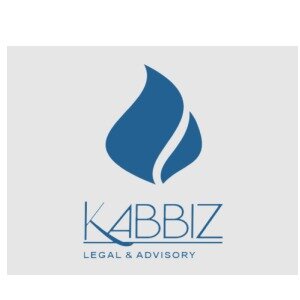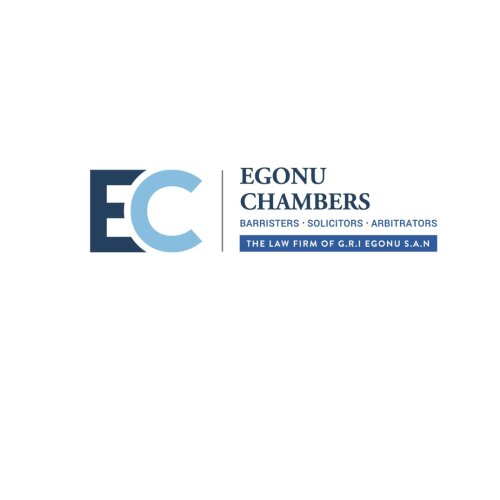Best Tax Increment Financing Lawyers in Onitsha
Share your needs with us, get contacted by law firms.
Free. Takes 2 min.
List of the best lawyers in Onitsha, Nigeria
About Tax Increment Financing Law in Onitsha, Nigeria
Tax Increment Financing (TIF) is a public financing method that is used as a subsidy for redevelopment, infrastructure, and other community improvement projects in Onitsha, Nigeria. TIF aims to stimulate economic growth by redirecting future tax revenue from the improved area to fund current projects. This method helps overcome the initial funding barriers that often limit development in economically challenged areas in Onitsha.
In Onitsha, TIF focuses on revitalizing underdeveloped areas by promoting private sector investments, mitigating urban blight, and creating employment opportunities. Successful TIF projects result in increased property values and enhanced community facilities, contributing to the overall economic health of the region.
Why You May Need a Lawyer
Understanding and navigating TIF can be complex. Here are common scenarios where legal expertise may be necessary:
- Property Development: Legal advice is often needed for drafting and negotiating contracts for development projects that utilize TIF funding.
- Compliance and Regulations: Ensuring compliance with local laws and regulations concerning the initiation and management of TIF districts.
- Dispute Resolution: Legal support for resolving disputes that may arise among stakeholders, including municipalities, developers, and local businesses.
- Financial Structuring: Guidance on structuring financing arrangements to maximize benefits and mitigate risks involved with TIF.
- Policy Interpretation: Understanding policy implications and how legislative changes may impact existing or future TIF initiatives.
Local Laws Overview
In Onitsha, the legal framework governing TIF is embedded in local development and finance laws. Here are key aspects:
- District Designation: TIF districts are designated based on criteria such as economic need, lack of development, and potential impact of investment projects.
- Incremental Tax: The increment in property tax revenue from the rise in property value within a TIF district is earmarked for funding redevelopment efforts.
- Public-Private Partnerships: Legislation encourages partnerships between government entities and private developers to achieve economic revitalization objectives.
- Accountability Measures: Transparency and accountability are enforced through mandatory reporting and auditing of TIF-financed projects.
- Community Involvement: Public hearings and consultations are required to ensure community interests are considered in planning TIF projects.
Frequently Asked Questions
What is Tax Increment Financing?
Tax Increment Financing (TIF) is a public financing method that uses future increases in tax revenues to fund current improvements in a designated area, aiming to spur development and economic growth.
How does TIF benefit Onitsha?
TIF in Onitsha helps revitalize blighted areas, attract private investment, enhance infrastructure, create jobs, and increase the property tax base.
Who can initiate a TIF district?
Local government authorities typically initiate TIF districts, often in collaboration with developers and other stakeholders.
What projects can be financed through TIF?
TIF can finance infrastructure improvements, new property development, renovations, and various community-enhancement projects.
Are TIF districts permanent?
No, TIF districts are usually temporary and last until the bonds issued to finance the improvements are repaid, typically 15-30 years.
Can TIF funds be used for any type of expense?
TIF funds are usually restricted to expenses related to development, infrastructure, and improvements within the TIF district, not general expenses.
How is the "increment" in taxes calculated?
The "increment" refers to the increase in property tax revenues over the baseline (i.e., pre-development) assessed value within the TIF district.
Is there a limit to the amount of funding through TIF?
Yes, limits are usually based on predetermined financial strategies and the projected revenue increments within designated districts.
How is the community involved in TIF initiatives?
Community involvement is encouraged through public consultations, feedback opportunities, and participation in planning processes.
Can TIF be used for residential projects?
Yes, TIF can fund residential projects, but they are generally part of broader mixed-use development plans to ensure economic sustainability.
Additional Resources
For more information or support, consider contacting the following entities:
- Onitsha Municipal Council: Provides information on proposed or existing TIF districts and community planning initiatives.
- Anambra State Ministry of Economic Planning: Offers insights into state-level policies and economic development plans, including TIF.
- Nigerian Institute of Town Planners (NITP): Offers resources and expertise on urban planning and development finance.
- Local Development Commissions: These often engage in the planning and implementation of TIF projects.
Next Steps
If you require legal assistance for Tax Increment Financing matters in Onitsha, Nigeria, consider the following steps:
- Research and identify experienced legal professionals specializing in urban development, finance, and local law on TIF.
- Consult with legal advisors to evaluate your project needs and obligations regarding TIF laws.
- Prepare all relevant documents and information concerning your property or project proposal before meeting with your lawyer.
- Engage with stakeholders, including local authorities and community members, to understand broader impacts and gather support for your initiatives.
- Stay informed about local economic policies that might impact TIF activities by attending forums and engaging with professional organizations.
Lawzana helps you find the best lawyers and law firms in Onitsha through a curated and pre-screened list of qualified legal professionals. Our platform offers rankings and detailed profiles of attorneys and law firms, allowing you to compare based on practice areas, including Tax Increment Financing, experience, and client feedback.
Each profile includes a description of the firm's areas of practice, client reviews, team members and partners, year of establishment, spoken languages, office locations, contact information, social media presence, and any published articles or resources. Most firms on our platform speak English and are experienced in both local and international legal matters.
Get a quote from top-rated law firms in Onitsha, Nigeria — quickly, securely, and without unnecessary hassle.
Disclaimer:
The information provided on this page is for general informational purposes only and does not constitute legal advice. While we strive to ensure the accuracy and relevance of the content, legal information may change over time, and interpretations of the law can vary. You should always consult with a qualified legal professional for advice specific to your situation.
We disclaim all liability for actions taken or not taken based on the content of this page. If you believe any information is incorrect or outdated, please contact us, and we will review and update it where appropriate.












